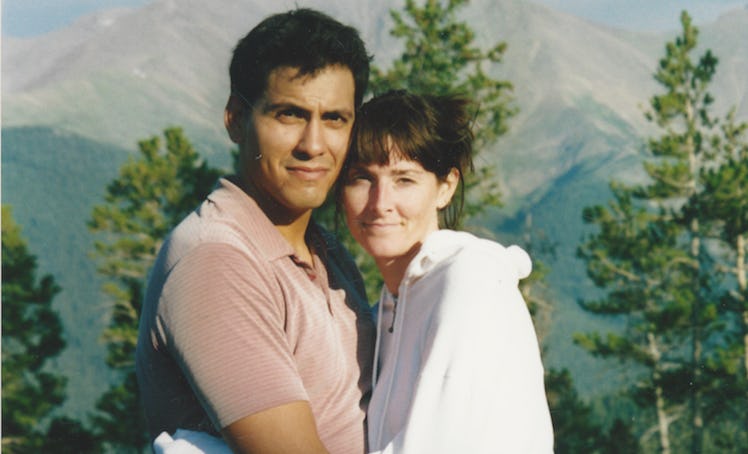When Netflix announced it was picking up a reboot of the long-running network docuseries Unsolved Mysteries, it kind of felt like a perfect match. The streamer has found a ton of success within the true crime genre and with rebooted series, and sure enough, when the new season of Unsolved Mysteries kicked off on Wednesday, July 1, everyone was talking about the unexplained death at the center of its premiere episode. The new show gave rise to a number of theories about Rey Rivera's death, even though it's hard to know which one — if any — could be true.
In the first episode of the Netflix series, titled "Mystery on the Rooftop," a documentary team explored the mysterious death of 32-year-old writer and videographer Rey Rivera in 2006. Rivera disappeared from his Baltimore home in May of that year, and a week later his body was discovered in a conference room at the Belvedere Hotel. Since the room had a hole in the ceiling, it appeared Rivera's body may have fallen from the roof of the hotel, although the investigators declared his cause of death was undetermined. As the episode pointed out, those close to Rivera noticed he was growing paranoid about stalkers prior to his disappearance, and the last time he was seen alive by someone who knew him, he had rushed out of his home after getting a phone call.
After watching the episode, there are a bunch of theories viewers may develop about what really happened to Rivera:
1. He died by suicide.
The theory that is most in line with the Baltimore Police Department's stance is that Rivera died by suicide. The episode presents a lot of issues with this theory, most notably his loved ones insisting it would have been out of character for him. However, some viewers pointed out the bizarre note Rivera left behind could point to undiagnosed mental illness.
2. His death involved the Freemasons.
Speaking of Rivera's note, it was filled with phrases closely connected to the Freemasons. The Freemasons are a widespread organization that heavily employs cryptic language and symbology, and they have long inspired conspiracy theories throughout the years. Given the amount of Freemason language in Rivera's note, it's no wonder viewers are guessing the organization could have had something to do with the strange death.
3. His death was staged.
Although investigators believed Rivera either jumped or fell from the roof of the hotel into the conference room, the episode presented a bunch of logistics that go against that cause of death. For instance, the only ledge that would have allowed Rivera's body to fall into the room was only accessible through other hotel rooms, and nobody reported seeing him. Also, the rooftop security camera was disconnected, and although Rivera's body had severe damage, his glasses and cellphone strangely did not have a scratch on them. All of this has led some people to theorize his death was staged.
4. He was killed by one of his readers.
Perhaps the most nefarious theory is that Rivera was killed by an investor who blamed him for significant monetary loss. This theory centers around Rivera's financial newsletter, The Rebound Report, in which he advised investors on which stocks to put their money into. As the episode noted, Rivera was disappointed some of his predictions were not panning out; plus, a company that was affiliated with the one Rivera was writing for was under investigation by the SEC. These financial issues led to a theory that an investor lost a lot of money after following Rivera's stock advice, and was so enraged by the loss that they killed Rivera.
Unfortunately, the episode ends without giving viewers any real clarity on Rivera's death — I mean, the show is called Unsolved Mysteries, after all — but hopefully the renewed public interest will lead to further investigation into the case.
If you or someone you know is experiencing suicidal thoughts, call the National Suicide Prevention Hotline at 1-800-273-8255 or text HOME to the Crisis Text Line at 741741. You can also reach out to the Trans Lifeline at 877-565-8860 or the Trevor Lifeline at 1-866-488-7386, or to your local suicide crisis center.
